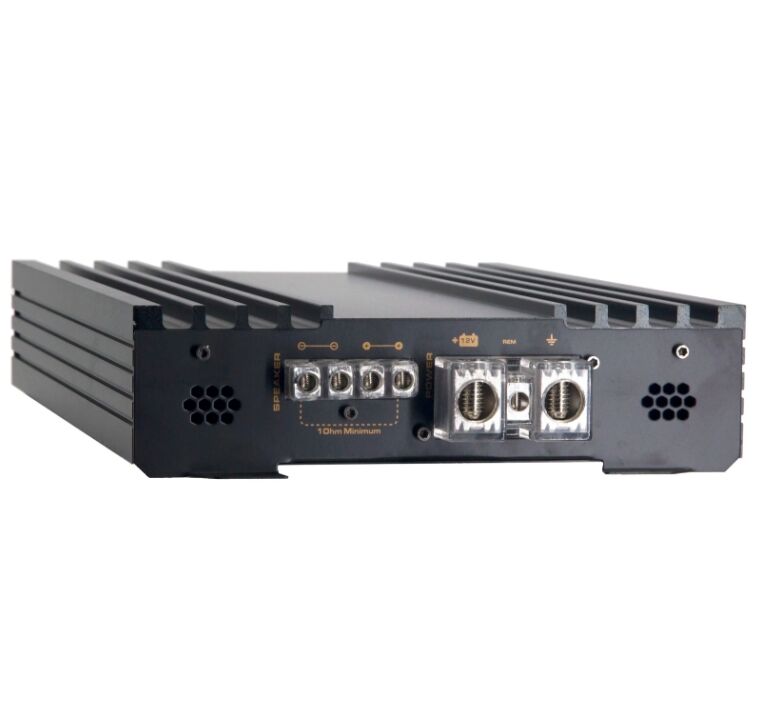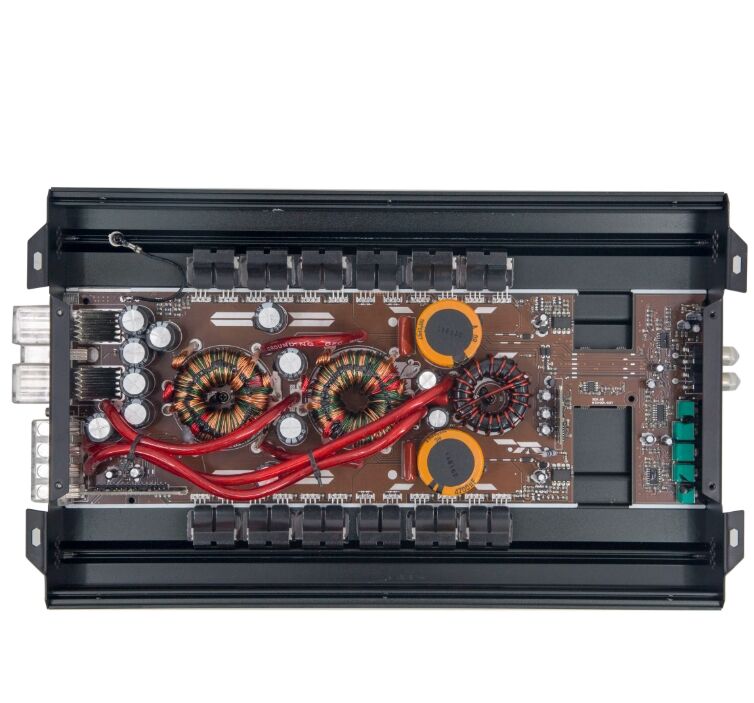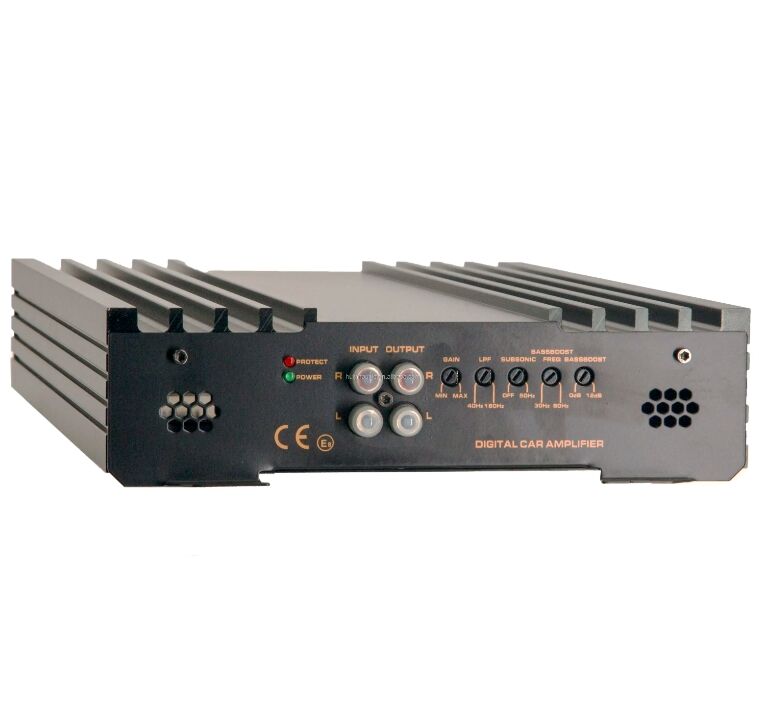A digital car amplifier uses digital signal processing (DSP) to convert analog audio signals into digital data, process the data, and then convert it back to an analog signal for amplification, offering distinct advantages in efficiency, precision, and versatility. Unlike analog amplifiers, which process continuous signals, digital amplifiers break the audio signal into discrete binary values, allowing for precise manipulation of sound parameters such as frequency response, dynamic range, and gain. This digital processing enables features like built in crossovers, equalizers, and sound staging adjustments, all programmable through user interfaces or mobile apps for customized audio tuning. Digital car amplifiers are highly efficient, often exceeding 90% efficiency in converting electrical power to acoustical power, which means less energy is wasted as heat. This efficiency reduces the load on the vehicle’s electrical system, making them ideal for vehicles with limited power reserves or for setups requiring high power output. They also tend to be more compact and lightweight than analog amplifiers, as they require smaller heat sinks, allowing for easier installation in tight spaces like under seats or in trunks. Digital amplifiers often incorporate advanced features such as Bluetooth connectivity, USB inputs, and compatibility with digital audio formats, integrating seamlessly with modern in car entertainment systems. While some audiophiles debate the warmth of digital vs. analog sound, advancements in DSP technology have significantly narrowed this gap, with high end digital amplifiers delivering clear, detailed sound that rivals analog counterparts. For users seeking a blend of power, efficiency, and customizable features, digital car amplifiers offer a compelling solution for modern automotive audio needs.


